Central Committee of the China Zhi Gong Party: Strengthen Enterprise Tech Innovation, Boost High-Level Opening-Up
Enterprise-led technological and industrial innovation is the essential path to developing new quality productive forces. Yet, what obstacles still hinder the current innovation environment? Tasked by the CPC Central Committee, the Central Committee of the China Zhi Gong Party launched its annual key research initiative focused on "Strengthening Enterprise-Led Technological Innovation and Advancing High-Level Opening-Up."
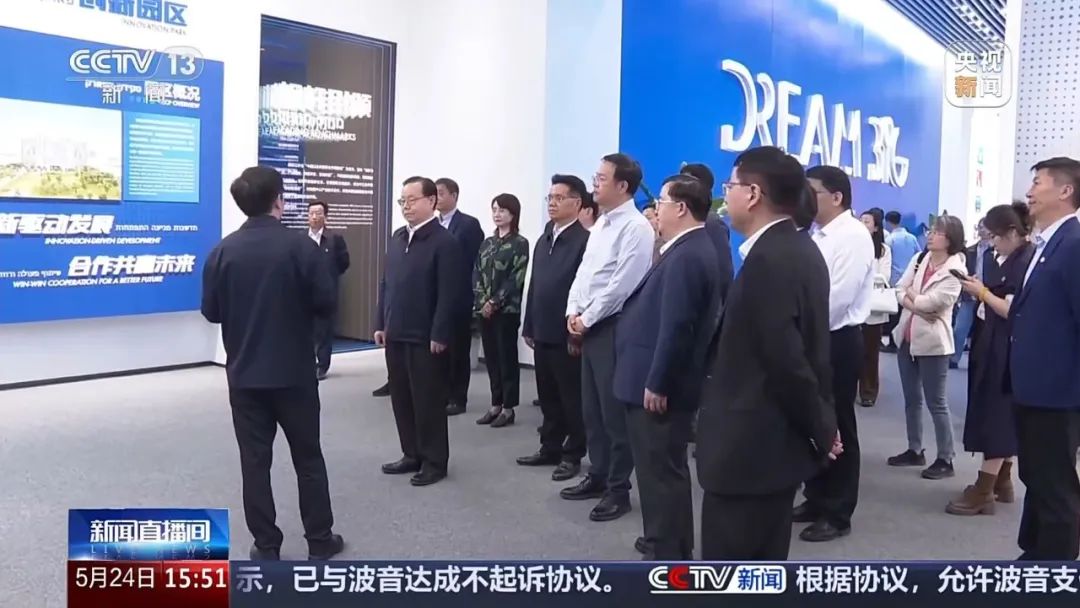
In Hunan, the team visited research institutes, R&D organizations, and tech enterprises to assess the progress of scientific and technological innovation on the ground.
Sunward Star Aviation Industry Co., Ltd. based in Zhuzhou, Hunan, is a high-tech company that has filled gaps in manned light aircraft and drones. Its "Aurora" light sport aircraft is the first Chinese-made model to receive airworthiness certification from the Civil Aviation Administration of China and to be successfully exported abroad.
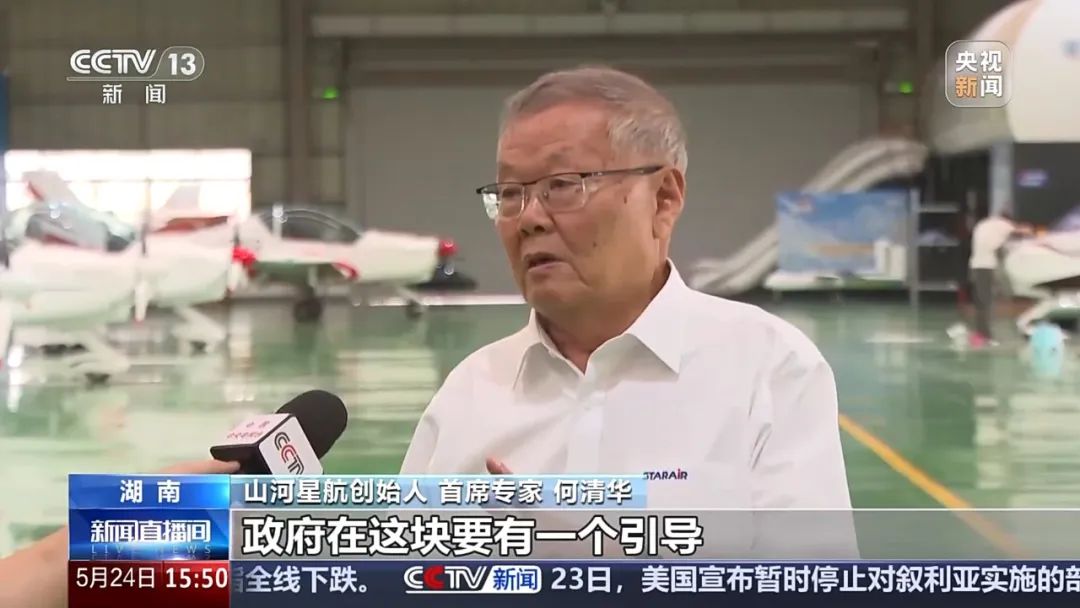
Qinghua He, the company's founder and chief expert noted: "In my view, users still face difficulties flying their aircraft smoothly, especially when traveling between cities. There are still problems with existing concepts and methods in low-altitude airspace management and airport construction. In these areas, we should look to regions with more mature development for guidance. At the same time, the government should play a guiding role and work to resolve these challenges in a cost-effective manner."
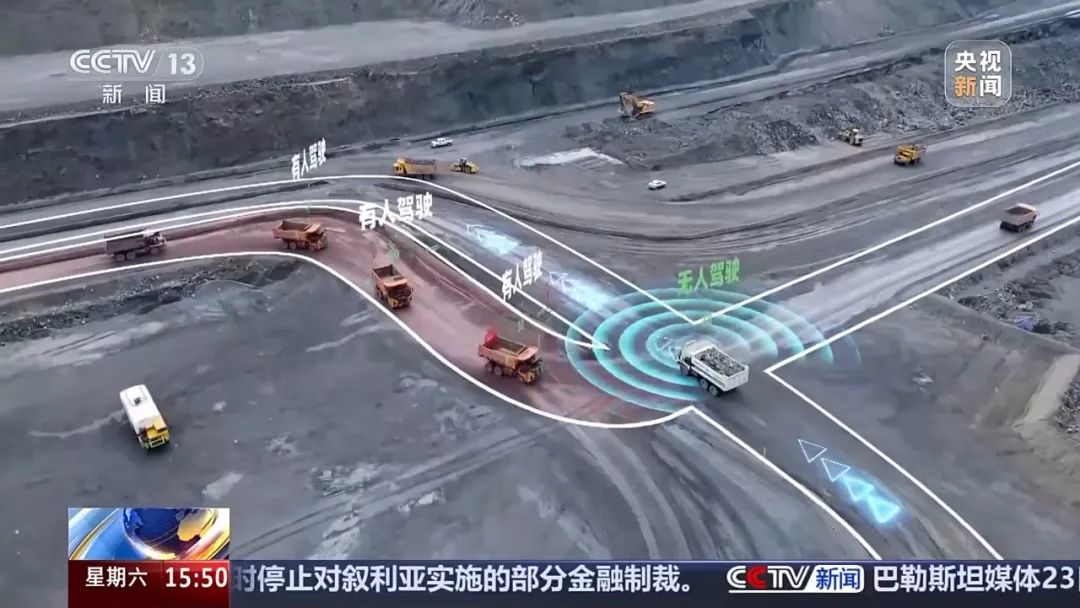
CiDi, founded in 2017 and specializing in autonomous driving, has grown into a national-level specialized and innovative "Little Giant" enterprise and a leading unicorn in Commercial Vehicle Autonomous Driving. Yet the company notes that securing government funding remains a challenge. During on-site investigations, the research delegation found that, like CiDi, many enterprises, institutes, and R&D organizations depend heavily on government investment for innovation. However, some local governments—concerned about the loss of state-owned assets—impose overly strict oversight, which limits investment flexibility.
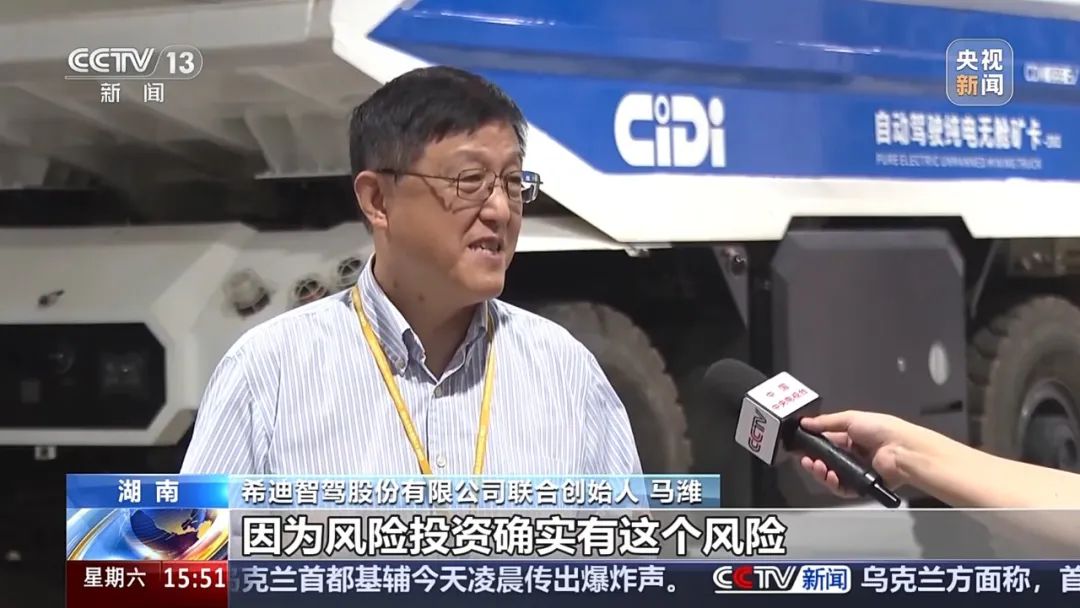
Wei Ma, co-founder and Vice Chairman of Board of CiDi, remarked: "Government funding should be made more flexible. Let the market decide whether to invest and create a more supportive environment. Venture capital, by nature, involves risk. If we overstate uncertainty and expect investments to always succeed without loss, we will stifle creativity and productivity, making large-scale innovation difficult."
The research delegation noted that while the central and local governments have made steady progress in building a favorable environment in terms of services, policy support, funding sources, and business climate, some deficiencies in institutional design persist, resulting in gaps in government-enterprise collaboration.
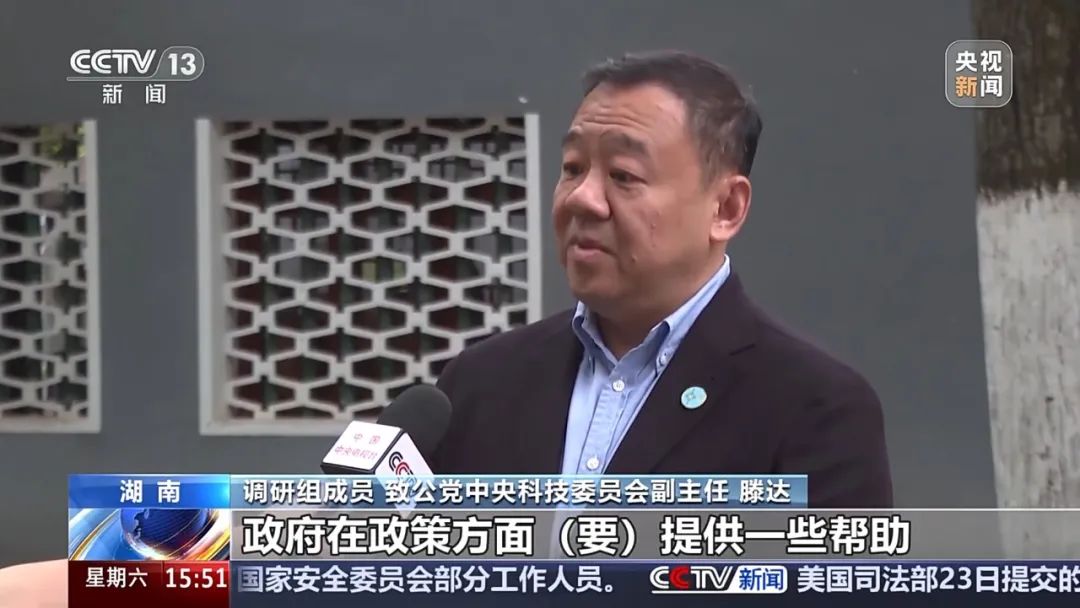
Da Teng, team member and Deputy Director of the Zhi Gong Party Central Committee Science and Technology Commission, stated: "The government should offer more support, particularly in areas such as R&D investment, tax deductions for research expenses, and the development of innovation consortia. These are essential for corporate innovation and high-tech advancement. With strong collaboration between enterprises and the government, high-quality development and high-level opening-up can ultimately be achieved."
In Jiangsu, the research delegation visited a number of enterprises and institutes in Nanjing and Changzhou. The Yangtze River Delta Carbon Fiber and Composite Materials Tech Innovation Center serves as a platform for developing and applying core technologies in carbon fiber and composite materials——carbon fiber is now widely used in wind power, new energy vehicles, aerospace, and sporting goods.
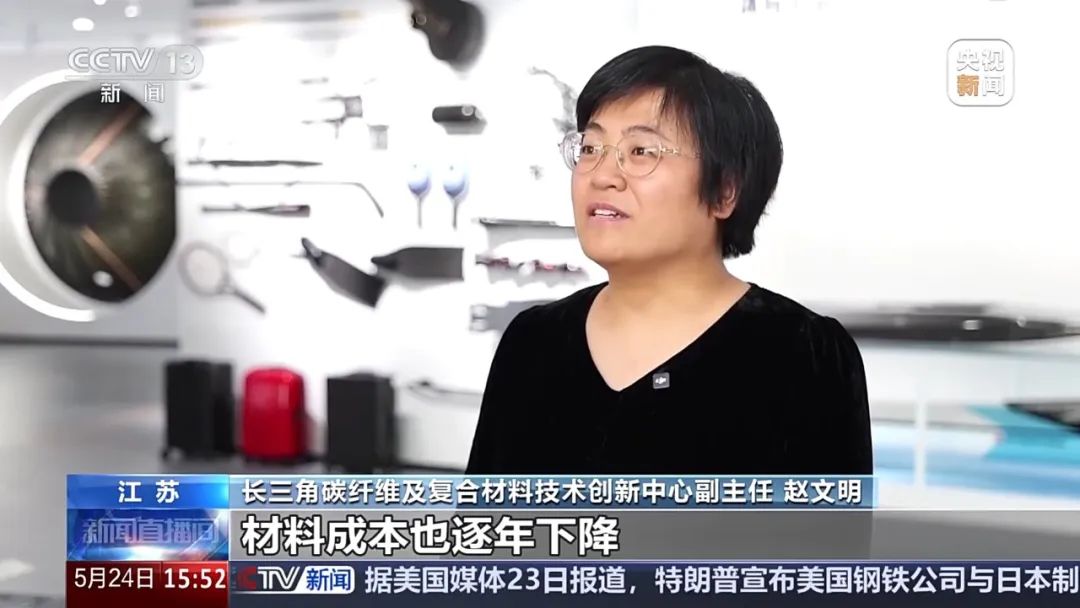
Wenming Zhao, Deputy Director of the Center, explained: "Over the past decade, costs have declined as domestic carbon fiber production has increased. However, challenges remain, including inconsistent quality, insufficient data accumulation, an overly complex variety of material types, and a continued need for higher-end materials."
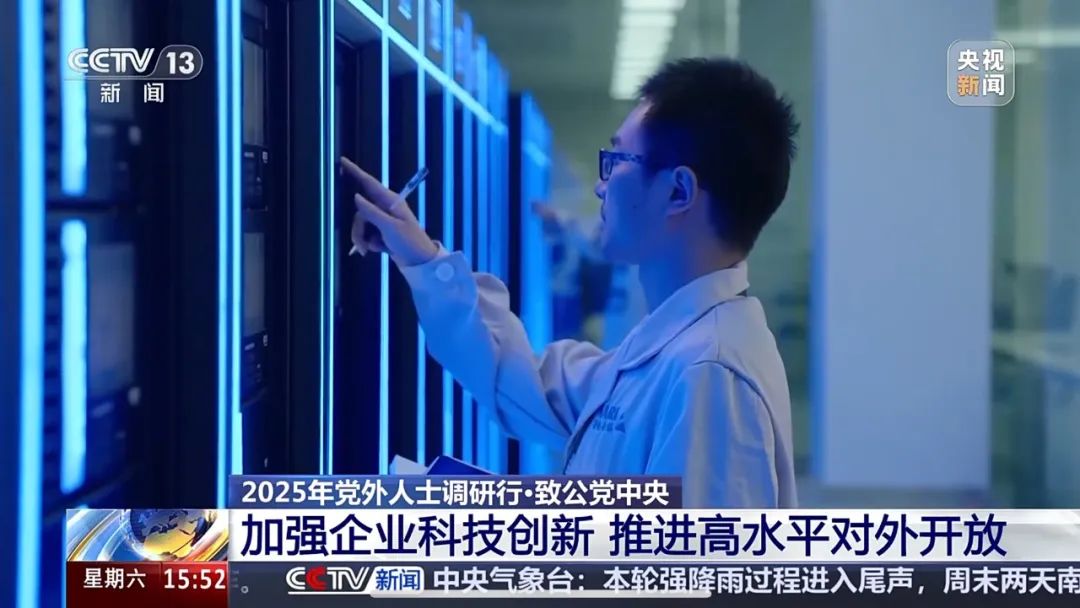
Experts in the research delegation identified a common challenge: innovation platforms are not performing effectively enough, largely due to low corporate participation. In Jiangsu, for example, only 30% of industry-related key laboratories are led or jointly operated by enterprises. There is also a shortage of platforms focused on emerging sectors ("new quality productive forces"), with resources scattered and lacking synergy. These limitations hinder enterprises from expanding globally, integrating into international innovation networks, and attracting overseas talent. The team recommended leveraging the pivotal role of enterprises in technological innovation to create a positive cycle among science, industry, and finance.
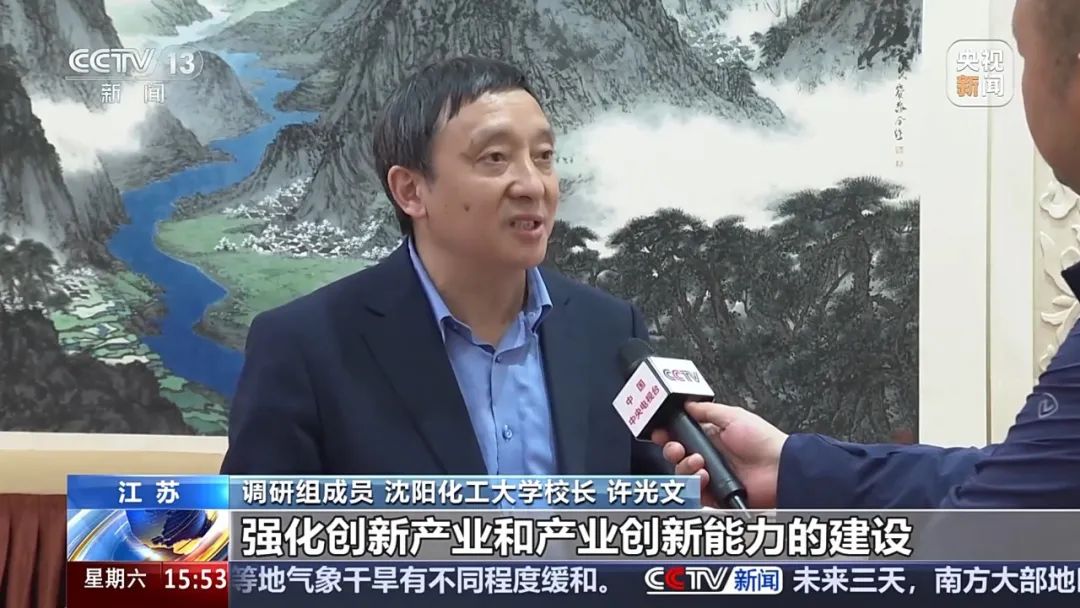
Guangwen Xu, team member and president of Shenyang University of Chemical Technology, proposed: “It is essential to strengthen both innovation-driven industries and their capacity for innovation. On one hand, leading enterprises should establish their own R&D organizations. On the other hand, for smaller sectors, we hope to see the formation of industry consortia, where multiple companies collaborate with research institutes to build industry-oriented R&D entities. These organizations can play a leading role in technological innovation, the commercialization of scientific achievements, and their industrial application.”
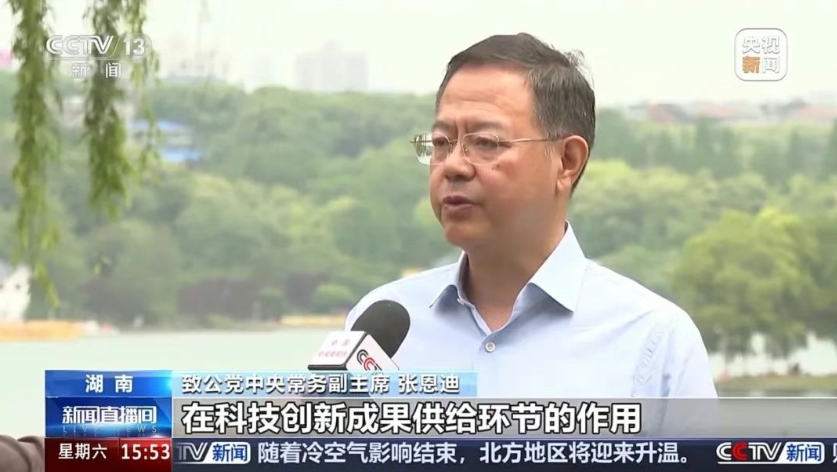
Endi Zhang, Executive Vice Chairman of the Zhi Gong Party Central Committee, added:“We should leverage the role of leading technology enterprises in the supply of scientific and technological innovation results. Encourage them to participate in foundational and core technological innovation projects, establish robust incentive mechanisms, and attract SMEs and private enterprises to collaborate in market-oriented innovation. Support enterprises in integrating global resources and joining the global innovation ecosystem to drive industrial transformation and upgrading.”
Source: CCTV.com / United Front Updates
